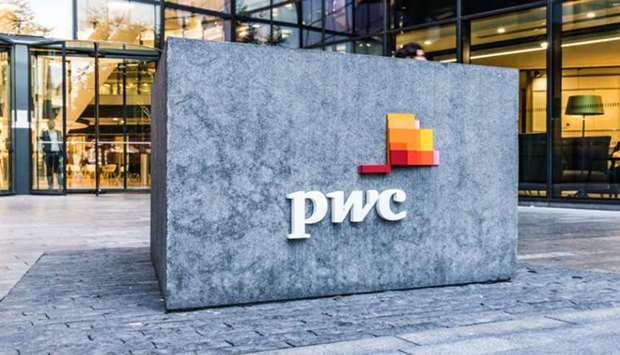Non-oil sectors in the Middle East should see a "significant" rebound in 2021 as lockdowns end and demand recovers, while oil production will only be slightly higher year-on-year, PricewaterhouseCoopers (PwC) said in a report.
Highlighting that the biggest uncertainty for 2021 is the oil price; it said the consensus forecast of $46 would be an improvement but still far below achievable fiscal breakeven levels for most countries.
However, a wide range of prices are currently easily conceivable and leading economies forecast a range of $40-$60.
Even with the Opec+ deal, the oil price outlook remains weak, with the most recent Reuters poll of economists forecasting an average price of just $36/barrel this year, down from $64 in 2019 and only slowly rising to $59 by 2024.
Prior to the crisis, most Middle East states were running deficits even with oil at $64, some of them very sizable, and so the new environment is "extremely challenging", it said.
The” impact of the fiscal policy responses, which would be substantial in normal times, are modest relative to the hit to revenue”, resulting from much lower oil prices and production, the report said.
"As a result, all the Gulf countries, along with others in the Middle East region, will have large deficits to finance for several years," PwC said.
Several countries have got ahead of the financing challenge through early issuance, it said, adding Qatar, Saudi Arabia and Abu Dhabi have together issued $27bn in Eurobonds since the start of the crisis.
Another major source of financing for the region is sovereign wealth funds. Some of these funds were developed for rainy days like this, but few states have clear mechanisms to determine how to draw down on them, according to PwC.
Despite the different starting points, the immediate economic impacts were similar in type across most of the region as lockdowns to prevent the spread of the virus impacted firstly the travel and tourism sectors and then, as they tightened, the rest of the non-oil economy.
Meanwhile, although oil production (largely unaffected by lockdowns) surged briefly in March-April, after the previous round of Opec+ cuts broke down, this did little to alleviate a decline in revenue due to an historic crash in oil prices, according to PwC.
Although broad approaches to the virus have largely coincided, there have been timing differences in the imposition and then easing of lockdowns that will likely have had a differential impact on economic indicators month-by-month.
The Gulf region among the first to respond globally to Covid-19, given their potential exposure from hub airports and expat populations, cancelling flights to China in early February, the report said.
However, a wide range of prices are currently easily conceivable and leading economies forecast a range of $40-$60.
Even with the Opec+ deal, the oil price outlook remains weak, with the most recent Reuters poll of economists forecasting an average price of just $36/barrel this year, down from $64 in 2019 and only slowly rising to $59 by 2024.
Prior to the crisis, most Middle East states were running deficits even with oil at $64, some of them very sizable, and so the new environment is "extremely challenging", it said.
The” impact of the fiscal policy responses, which would be substantial in normal times, are modest relative to the hit to revenue”, resulting from much lower oil prices and production, the report said.
"As a result, all the Gulf countries, along with others in the Middle East region, will have large deficits to finance for several years," PwC said.
Several countries have got ahead of the financing challenge through early issuance, it said, adding Qatar, Saudi Arabia and Abu Dhabi have together issued $27bn in Eurobonds since the start of the crisis.
Another major source of financing for the region is sovereign wealth funds. Some of these funds were developed for rainy days like this, but few states have clear mechanisms to determine how to draw down on them, according to PwC.
Despite the different starting points, the immediate economic impacts were similar in type across most of the region as lockdowns to prevent the spread of the virus impacted firstly the travel and tourism sectors and then, as they tightened, the rest of the non-oil economy.
Meanwhile, although oil production (largely unaffected by lockdowns) surged briefly in March-April, after the previous round of Opec+ cuts broke down, this did little to alleviate a decline in revenue due to an historic crash in oil prices, according to PwC.
Although broad approaches to the virus have largely coincided, there have been timing differences in the imposition and then easing of lockdowns that will likely have had a differential impact on economic indicators month-by-month.
The Gulf region among the first to respond globally to Covid-19, given their potential exposure from hub airports and expat populations, cancelling flights to China in early February, the report said.


